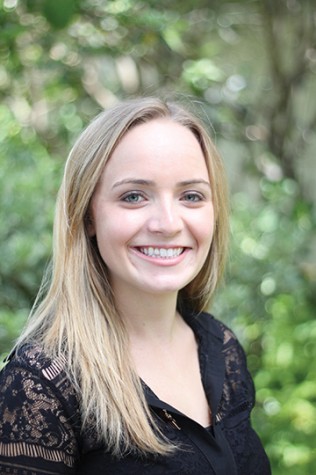Ignorance is bliss, except when it’s not. In reality, ignorance usually leads to embarrassingly inaccurate misconceptions about communities and people we know nothing about. Thankfully, there is a way to move past hatefully stereotyping people, and it’s done through understanding.
The lesbian, gay, bisexual, transgender and queer community at San Diego State is hosting two weeks of activities intended to spread awareness and acceptance. It began on Oct. 11 with National Coming Out Day. The rest of the week was filled with activities meant to aid the process of coming out. Ally Week, from Oct. 15-18 is focused on events for supporters of the community. Yes, straight people can also take part in the festivities. In fact, the LGBTQ community encourages heterosexual individuals to actively participate and learn more about different sexual orientations. Meeting LGBTQ individuals is a great way to increase the understanding about their community, rather than stereotyping the abstract “others.” If more students understand and engage the LGBT community, the SDSU campus will benefit from diminishing homophobic stupidity.
SDSU is known for its inclusiveness and diversity. It was recently awarded five out of five stars from Campus Pride on its LGBT- Friendly Campus Climate Index. SDSU is one of only 43 schools in the U.S. to receive this honor. It’s based on the overall quality of life of LGBTQ people on campus and the services and programs provided by the university.
SDSU also became the second university in North America to have an LGBT major. The school is doing all it can to provide information about this community but it is now the students’ job to take advantage of it. By simply attending a school offering such inclusive education, we are already exposed to much more than schools in other parts of the country. Learning to accept other ways of life will positively benefit individuals and the SDSU community as a whole. Straight people will learn acceptance and the ability to see others as people first, before questioning their sexual preferences. This will lead to a campus-wide move toward accepting differences rather than fearing them.
Many LGBTQ individuals find a safe haven in student-run organizations on campus. Gamma Rho Lambda, a self-proclaimed queer-based sorority, offers a safe outlet for members to participate in social events, retreats and community service. Groups like this provide numerous opportunities to reach out to those in need of belonging. It gives SDSU students a non-judgmental, open environment to express who they really are, regardless of sexual orientation.
Safe Zones is an organization at SDSU that trains individuals who support the LGBTQ community to become “allies.” Safe Zone allies volunteer to secure the safety and quality of life of the LGBTQ community. They learn how to address homophobic comments and support individuals struggling to accept their sexuality, among other personal dilemmas. You don’t have to be an expert on LGBTQ issues to become an ally. You just have to be interested in promoting equality to those who rightfully deserve it.
SDSU LGBT Student Union president Marina Butler, an English and women’s studies senior, is a self-identified queer. She describes this as an all-encompassing term to reflect fluidity of gender, sexuality and feelings. She is very supportive of allies taking part in LGBTQ community events, saying, “I would love to see more allies involved, because I think it would show that our community is open to everyone and it would help increase the visibility of the LGBTQ community.”
When people make the effort to get to know others outside their usual social circles, they broaden their horizons to entirely new experiences. By taking a stand for those who rightfully deserve equality, we are actively engaging in the fight to make sexual freedom a reality.
Even those who don’t explicitly shun members of other sexual orientations or gender identities can still contribute to a homophobic climate. Simply taking for granted certain benefits heterosexuals have can debase the restrictions on others. Many people don’t think about their ability to hold hands or show affection for their partner of the opposite sex as anything special. Yet, for many gay couples, it could result in harsh looks and whispers. We need to acknowledge heterosexual privileges in order to recognize homosexual oppression.
Nearly four percent of Americans self-identify as LGBT. We cannot ignore this many people. Getting involved in the LGBTQ community is an easy step toward everyday normalcy between sexual orientations. It is the obligation of everyone to understand those around them and know their differences are natural. Heterosexual allies supporting the LGBTQ community are necessary to finally end the ridiculous stigma surrounding something the staunchest detractors don’t even understand.








